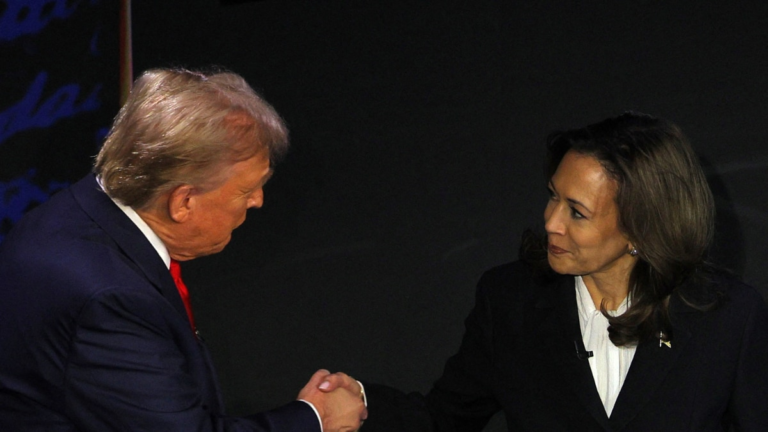Last updated:
2024 US Elections: The Carnegie Endowment for International Peace Research shows that Indian Americans have historically supported the Democratic Party. However, in this election, the voting behavior of communities that support the Republican Party has gradually changed.

According to a 2024 Carnegie Endowment study, 61% of registered Indian American voters plan to vote for Kamala Harris, while 32% plan to vote for Donald Trump. (Reuters file photo)
Indian Americans make up a significant portion of the U.S. population, with approximately 5.2 million Indian Americans in the United States. They are the second largest immigrant group in the United States and play an important role in the country’s politics.
Indian Americans have historically supported Democrats in overwhelming numbers, but Republicans feel they can leverage their votes around the party’s positions on the economy, social issues, and India-US bilateral relations. .
What is the atmosphere like in the Indian American community?
Milan Vaishnav, senior fellow and director of the South Asia Program at the Carnegie Endowment for International Peace, told ANI that Pennsylvania, North Carolina, Georgia and Michigan have large enough Indian-American populations to offset the gap in the Indian-American population. He said that it is an important battleground state in which the US will surpass the US. Two presidential candidates.
According to a survey conducted in October 2024 by the Carnegie Endowment for International Peace as a follow-up to a survey conducted in 2020, 47% of respondents identified themselves as Democrats, compared to 56% in 2020. decreased from The percentage of Republicans is stable. On the other hand, the percentage of independents is increasing.
The 2024 survey also found that 61% of registered Indian American voters plan to vote for Harris, compared to 32% for Trump. Since the last election in 2020, there has been a slight shift in community preferences, with an increase in the percentage of respondents willing to vote for Trump.
Among Indian American voter respondents in the survey, 67% of women said they intended to vote for Harris, compared to 53% of men. 22% of women plan to vote for Trump, and 39% plan to vote for him.
This data suggests that the Indian American community has a bleak view of the Republican Party. The party is out of sync with multiple policy positions held by members of the community.
The survey also found that abortion and reproductive rights are “highly salient issues for Indian Americans this election year, the second most important policy concern behind inflation, the economy, and jobs.” emphasized.
Indian American demographics
There are currently approximately 5.2 million people of Indian descent living in the United States, 3.9 million of whom are 18 years of age or older. Based on 2022 data, there are currently approximately 2.6 million Indian American voters.
Between 2010 and 2020, the community grew by 50%, making it the second largest immigrant community by region of origin, after Mexican Americans. 70% of people born outside the United States entered the United States after 2000.
Over the years, this community has risen in socio-economic status, making it an attractive target for political parties. The median household income for Indian Americans is $153,000, more than double the national income.
harris vs trump
Since Harris was nominated as the Democratic presidential candidate in August, various Indian American and South Asian American organizations have worked to rally support for her through fundraising and other activities.
In the final new york timesA Siena College national poll conducted Oct. 20-23 found the two applicants tied at 48 percent. The remaining 4% are undecided.
In another poll conducted by financial times The University of Michigan’s Ross School of Business showed that 44% of respondents trust Trump to run the economy, compared to 43% for Harris.
“When you ask Indian-American voters why they don’t connect with the Democratic Party, they answer why they don’t connect with the Democratic Party, even though the Democratic Party has been a natural stronghold for Indian-Americans in the last few election cycles. Do they choose not to empathize? They say things like: They believe the Democratic Party is too soft on illegal immigration, they are very concerned about inflation, prices, and job opportunities, and a significant percentage of them say things like: I believe that the Democratic Party and the left are too involved in identity politics. So these are some of the things that we’re seeing in the data, especially among men,” Vaishnav said.
The Carnegie Endowment study also suggests that Asian Americans’ loyalty may be gradually shifting from the Democratic Party to the Republican Party. “Compared to other racial groups, Asian Americans tend to have weaker political party attachments, and this group’s voting behavior has gradually shifted in favor of Republicans in recent elections. The trend is also observed among other nonwhite voters,” the survey showed.
The seven key battleground states that will determine the outcome of the election are Georgia, Michigan, Arizona, Pennsylvania, North Carolina, Wisconsin, and Nevada.

